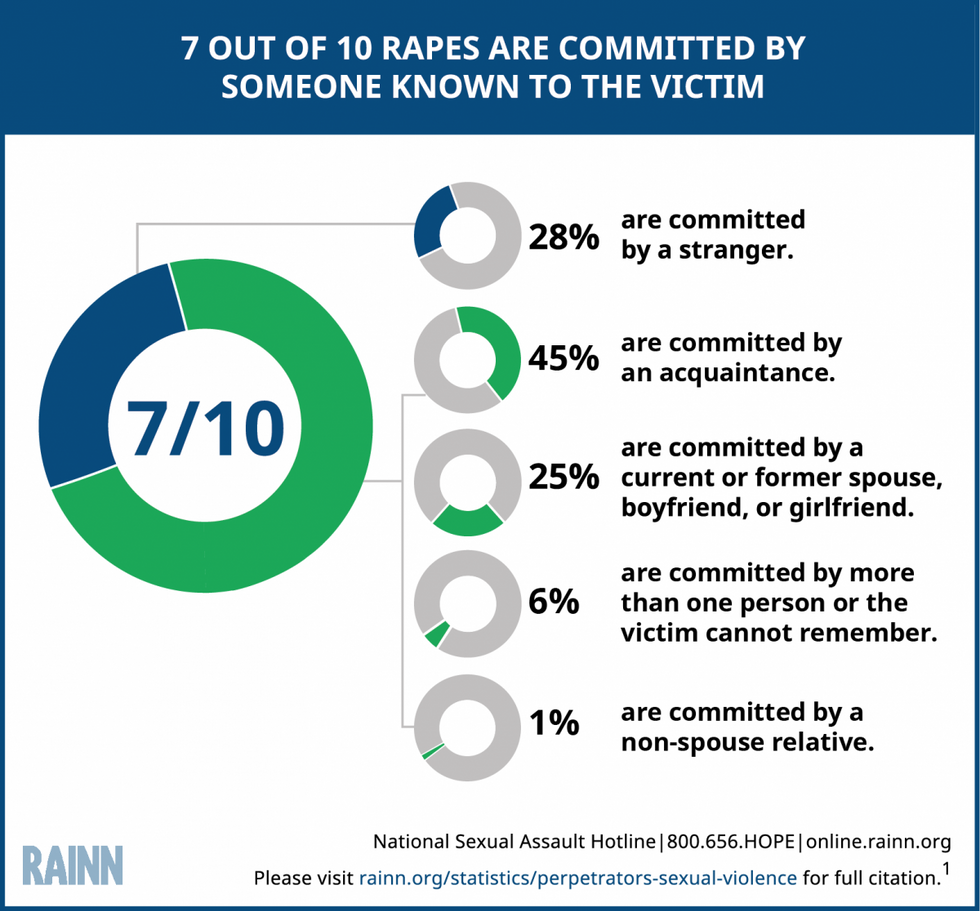Most people have this notion that rapists are criminals, lower-class, creepy men who hide in alleyways or empty parking lots. Yes, sometimes complete strangers are rapists, but according to RAINN, those instances make up only 28 percent of rapes. This means that over 70 percent of rapes are from someone you know—someone you trust.
With the #MeToo movement taking the forefront of today's conversation, it has become evident that not only can rape happen to anyone, but a potential rapist can range from a stranger on the street to your next door neighbor. Rapists can be women, friends, your boss, significant others, family members and even priests.
Grant William Robicheaux and Cerissa Laura Riley have been accused of drugging women and raping them. Most people wouldn't expect a successful surgeon and former reality star to commit such horrible crimes, and a female dance instructor and evangelical missionary wouldn't be expected to be involved either.
Prosecutors say that Robicheaux and Riley used their "good looks" and "charm" to drug and rape at least two women, but after confiscating Robicheaux's phone they fear there could be many, possibly hundreds more.

Seemingly trustworthy people being accused of sexual assault isn't uncommon. Harvey Weinstein, Bill Cosby, Kevin Spacey—and more recently Catholic priests and Brett Kavanaugh—all successful and seemingly trustworthy people accused of rape. Instead of using their "good looks" and "charm", they use their position, their power, their money to take advantage of those who trust them.
No longer can you trust acquaintances, your boss, a seemingly normal couple or a priest. Predators are lurking in the workplace, in your safe space, at the bar, in churches—but instead of hiding behind bushes they're hiding behind a successful career, a friendship, good looks, a confessional. The second you let your guard down—that is the second they attack.















